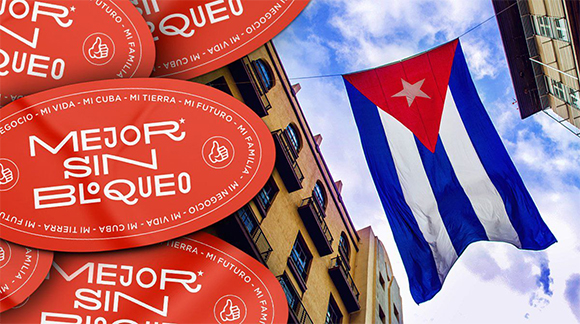Members of the National Network of Solidarity with Cuba (NNOC) called in Detroit, Michigan, for a fundraiser on April 13 to purchase medicines that will be sent to the Caribbean island.
“Aiming to overwhelm the strong health system that Cuba has built, the US blockade restricts access to medical technologies and prevents the purchase of medical supplies,” the call stated.
For their part, activists from the New York-based political education space, The Peoples Forum, organized a mass campaign to send 800 tons of wheat flour to the Cuba.
“What would you do if your neighbor was dying of hunger? This is not hypothetical. Right now, the United States Government is deliberately starving the Cuban people 90 miles south of our country. “We must all act now,” said the call on social networks.
The Bridges of Love movement arrived in Havana this weekend with “a modest solidarity load of 1,500 pounds of milk for the William Soler pediatric hospital,” activist Carlos Lazo told Prensa Latina.
The delivery is the result of “the support and donations from Cuban emigrants and US citizens who oppose the blockade against Cuba and who want bridges of love to be built between the people of Cuba and the United States,” said Professor Lazo, coordinator of the project. “Repeatedly, we have taken powdered milk to 13 Cuban provinces, some of them more than others due to natural disasters,” he said, insisting that “we have to continue making holes in the blockade until it is over.”
April 6 marks the 64th anniversary of the infamous memorandum on Cuba by Lester D. Mallory, who was Assistant Undersecretary of State for Inter-American Affairs in the administration of Dwight Eisenhower (1953 and 1961).
Shortly after the triumph of the Cuban Revolution, the official admitted his discomfort with the existence of undeniable popular support for leader Fidel Castro.
That is why, he considered that the only “foreseeable way to reduce internal support (for Fidel) is through the disenchantment and dissatisfaction that arise from economic malaise and material difficulties.”
He then suggested “rapidly employ all possible means to weaken Cuba’s economic life (…) (making) the biggest progress in depriving Cuba of money and supplies, to reduce its financial resources and real wages, to provoke hunger, desperation and the overthrow of the Government.”
After 64 years, the United States Government continues to bet on the same script of the “Mallory Memorandum.” It applies its policy of maximum pressure and economic asphyxiation, condemned at the UN almost unanimously by the international community.
jg/jcm/dfm










